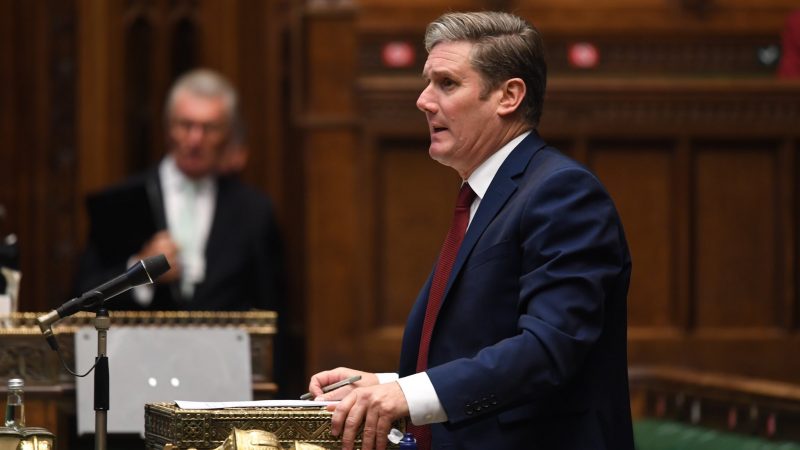
The Prime Minister will deliver a statement this afternoon on the new ‘three tier’ system, under which every area of the country will be classified as ‘medium’, ‘high’ or ‘very high’. The details of which restrictions belong to each alert level are not entirely clear yet, but it is understood that ‘medium’ means current national rules, ‘high’ means additional restrictions on household mixing indoors, and ‘very high’ means no household mixing indoors or outdoors plus business closures. Crucially, however, it appears that not all areas in the highest tier will be under the same restrictions, which undermines the idea that this new system will clarify everything.
Andy Burnham predicted back in May that the local lockdown policy would be a “recipe for chaos”, and he is being proven right so far. MPs, mayors and councils in the worst-hit places in the North of England – whether Labour or Tory – are not happy with the government’s handling of their Covid spikes, but the particular complaints vary: there are those most concerned about the level of restrictions, and those most worried about insufficient financial support for businesses and workers. The Chancellor has given his winter economy plan a makeover, but – as I set out on Friday – there are many holes in his latest set of proposals.
After months of no consultation with local elected representatives and little transparency over data and decision-making, the government is now trying to kill two birds with one stone – impose restrictions, but allow Labour mayors to take the blame. They are continuing to present already finalised Covid measures, but meetings are taking place to guard against complaints that local leaders are not being engaged with. One minister is quoted by The Telegraph as saying of mayors: “We want them to own it.” For Liverpool, the focus is now on upping the financial support available; for Manchester, Burnham is still fighting the extent of restrictions (as students are a big factor in the spike there). Negotiations are ongoing.
We have a busy day ahead, including a PM statement to the Commons at 3.30pm and a coronavirus press conference at 6pm. Keir Starmer will also address the Parliamentary Labour Party at 7pm, and there is much for Labour MPs to discuss. At PMQs last week, Boris Johnson found a rather successful attack line: highlighting Labour abstentions on crucial matters. The Conservatives have released attack ads to the same effect, saying Starmer “can’t decide” and “Labour’s got new no leadership”. They must be aware that these abstentions are controversial within the party – not just with Labour activists, but MPs too.
LabourList understands that frustration among Labour MPs is growing over the leadership’s ‘abstention strategy’. Both the overseas operations bill and the ‘spycops’ bill saw Labour abstain at second reading, and Starmer has confirmed that they will also be told to abstain on the 10pm hospitality curfew this week despite Labour’s own tough criticisms of the arguably counterproductive measure. The Labour leader says he is worried that if the curfew is voted down, nothing will take its place. (There is also the issue of the Welsh Labour government having a 10pm “drinking-up time”, which is why Starmer is calling for reform along those lines.) But as Labour whips contacted MPs over the weekend, it is thought that irritation over the current approach was expressed by representatives from across the party and not just the left.
Sign up to LabourList’s morning email for everything Labour, every weekday morning.



More from LabourList
‘Help shape the next stage of Labour’s national renewal through the 2026 NPF consultation’
‘AI regulation is key to Labour’s climate credibility’
Ben Cooper column: ‘Labour needs to rediscover its own authentic populism’